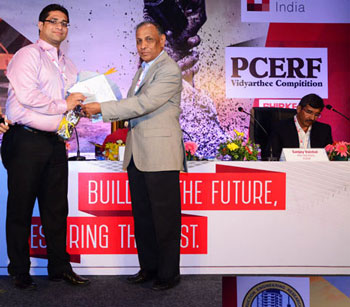Master of Technology in Civil Engineering (Construction Engineering and Management)
| Affiliated to | Duration | Academic Year | Sanctioned Intake | Exam Structure |
|---|---|---|---|---|
| Mumbai University | 2 years, Full Time | 2 semesters each | 24 | Theory, Practical, Oral, Term Work |
The Master of Engineering (M.E.) in Construction Management and Engineering is a specialized graduate program that combines advanced technical knowledge with management skills required to the construction industry. The program is designed to equip students with the expertise required to manage complex construction projects, ensuring they are delivered on time, within budget, and in line with safety and quality standards.
The curriculum include core subjects as Statistical Methods in Construction, Project Management & Planning in Construction, Project Economics and Financial Management, Infrastructure Development, Project Management, Major Elective Subjects are Contract Management, Sustainable Construction Practices, Disaster Management and Mitigation Measures. System Approach in Civil Engineering, Advanced Construction Technology, Building Services and Repairs.
Graduates of this program are prepared for leadership roles in construction firms, engineering consultancies, real estate development companies, government agencies, and project management offices. Potential job titles include Construction Manager, Project Manager, Site Engineer, and Consultant in Construction Management. This specialization is ideal for those who aspire to combine technical engineering skills with management expertise to drive innovation and efficiency in the construction sector.

